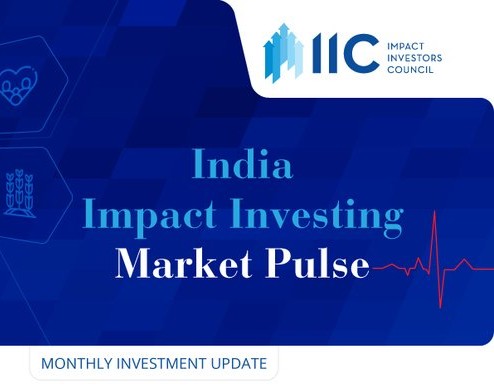India Impact Investors Council (IIC) releases annual report “2020 in Retrospect: India Impact Investment Trends”
The annual research report on ‘2020 in Retrospect’ reveals that Impact enterprises received ~$2.6BN in investment across 243 equity deals and saw 13 successful exits in the calendar year (CY) 2020.
Despite the global health pandemic and its accompanying effects on the business and economic environment, impact investors continue to pledge their support to solving critical social and environmental challenges through investments in scalable, tech-based, innovative social enterprises.
Speaking at the release of the report, India Impact Investors Council (IIC) Chief Executive Officer Ramraj Pai said the Indian impact investing sector is clearly coming of age.
“Notwithstanding the pandemic, Indian impact enterprises have proved to be resilient: we see continued interest from investors in investing in a variety of innovative tech led impact ideas. Our role at the IIC is to continue to provide the market with credible data and analysis and this report on impact investing trends in 2020 is another effort in this direction,” said Ramraj Pai.
Some of the key findings of the IIC report are as follows:
Overall, impact investing volumes fell but there is increased interest in Early-Stage Enterprises. While overall impact investments in CY 2020 fell 25% vis a vis CY 2019, the sector also witnessed a ~16% rise in seed stage investment volume reflecting the interest in the sector despite the pandemic. Investors were most keen to back early-stage enterprises in agriculture, livelihoods and healthcare sector.
Big-Bang year for the Education Sector: 2020 was a ‘big-bang year for the education sector attracting investments totaling ~$660Mn across 47 deals, with online test prep and K10 segments leading the way. While the national lockdowns wreaked havoc for the traditional modes of education, there was a dire and urgent need for remote tech-based solutions ‘to keep the flow of knowledge running to 335 million students enrolled in the country’. This crisis created an opportunity for existing ed-tech platforms. The sector performed substantially better than 2019, with 65% Y-o-Y growth in investment volumes and ~20% rise in number of deals.
Investors back early-stage health enterprises: Albeit an overall fall of ~70% in investment volume versus 2019, investors are actively investing in early-stage healthcare enterprises focused on telemedicine, AI based solutions, cloud enabled diagnostic tests, in 2020. There was a ~85% rise in number of seed stage deals[3] across healthcare segments in 2020.
Tech-Based business models attracted greater investor attention: Technology adoption has leapfrogged years and opened up exciting opportunities for impact start-ups’ specifically in agriculture, education and healthcare. Investors were also quick to put their money into SME Tech solutions that addressed the urgent demand for digitization to enhance efficiency of SME businesses. Early-stage innovative tech-based enterprises catering to the SME sector, actually observed a 7-times increase in investment volume in 2020 ($51 Mn in 2020 vs $ 6 Mn in 2019).
Degrowth in Late-Stage Financial Inclusion related busines models: Expectedly, investments related to financial access faced the maximum impact during the year given the uncertainty around the creditworthiness of customers and the lack of demand for loans. While interest in non-lending financial models (payments/insurance solutions etc.) remained robust, the sector witnessed a 35 % fall in investments in late-stage enterprises in the financial access sector: this accounted for a bulk of the overall de-growth in the impact sector vis-à-vis last year.
Contribution to UN Sustainable development goals: Impact investing has contributed towards 11 of the 17 Sustainable Development Goals and enterprises focused on SDG 5 (Gender Equality) and SDG 9 (Industry, Innovation and Infrastructure) received the highest volume of investments in 2020. This is consistent with our research from investment analysis for previous years.
The India Impact Investors Council (IIC) is India’s preeminent member-based not for profit industry body set up to strengthen Impact Investing in the country. IIC’s key areas of activity and effort include advocacy and policy support, research, and publications in addition to a strong focus on impact measurement and management. IIC is supported by over 40 investors and ecosystem partners including Aavishkaar Group, Omidyar Network India, Michael and Susan Dell Foundation, Elevar Equity, and Caspian Investment Advisors, amongst others.





